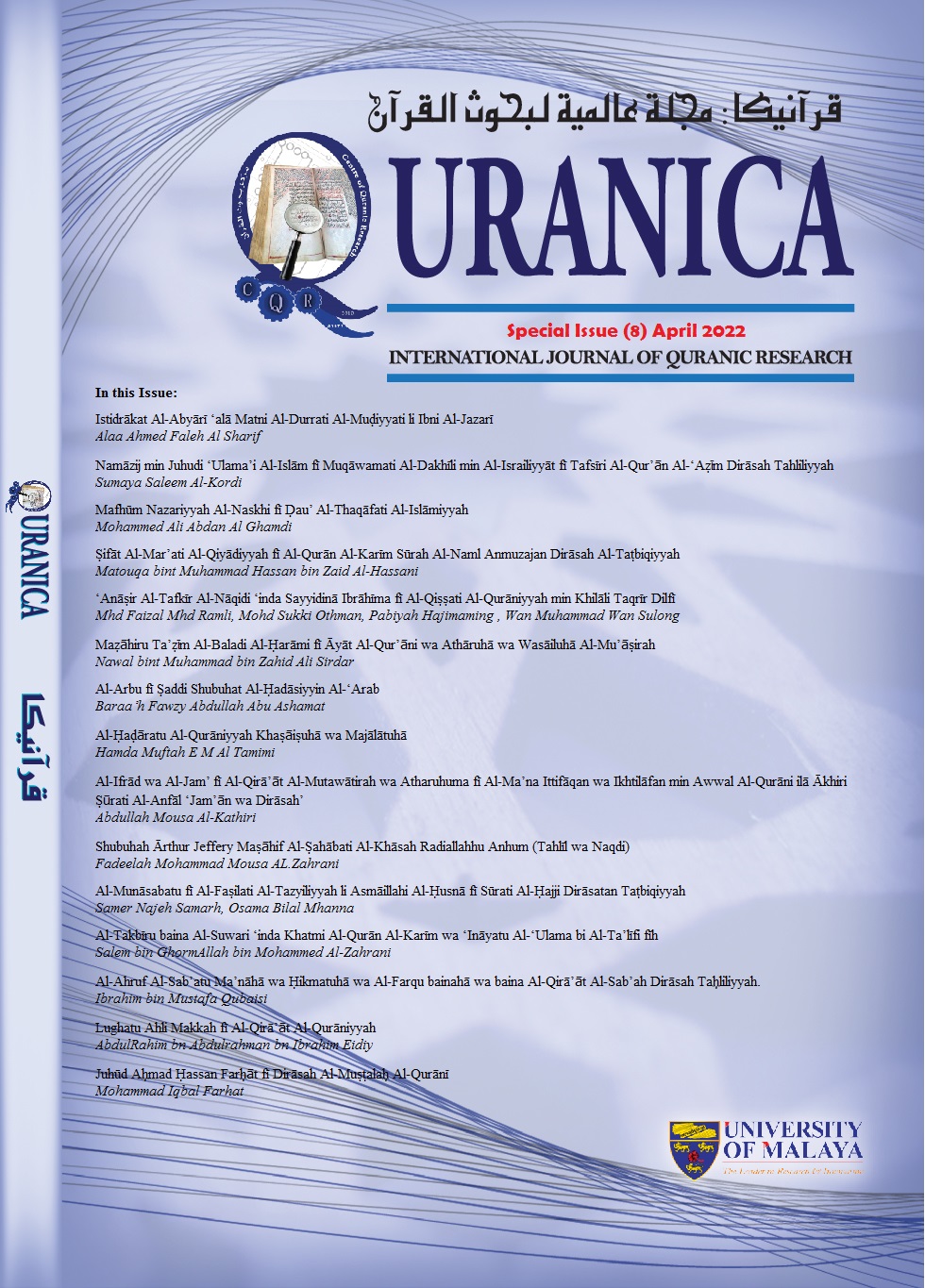‘Anāṣir Al-Tafkīr Al-Nāqidi ‘inda Sayyidinā Ibrāhīma fī Al-Qiṣṣati Al-Qurāniyyah min Khilāli Taqrīr Dilfī
DOI:
https://doi.org/10.22452/quranica.vol14no1.13Keywords:
Critical Thinking, Delphi Report, Prophet Ibrahim, Qur'anic StoryAbstract
This research aims to identify the elements of critical thinking of Prophet Ibrahim in the Qur'anic story. The Prophet Ibrahim was one of the messengers of determination, God Almighty assigned him to lead, and it is one of the difficult costs, which many strong people in mind and body are incapable of, except that the Prophet Ibrahim, whom God gave wisdom and guidance since his childhood, gives an indication that Prophet Ibrahim possesses a critical thinking. The research adopted the descriptive analytical approach through the application of critical thinking skills in the Delphi report, which are interpretation, analysis, evaluation, inference, explanation, and self-regulation as a measure of study for the elements of critical thinking. The research data was collected from the discourses of the Prophet Ibrahim that relate to the critical thinking element while he was in Iraq as mentioned in the Qur’anic story. The result concluded that the six elements of critical thinking have been presented in the Prophet Ibrahim’s thought. These elements are presented in his discourses to reach specific goals and objectives when he performed the duty of succession that God has assigned to him on this earth.
Downloads
Downloads
Published
Issue
Section
License
Disclaimer
QURANICA makes every effort to ensure the accuracy of all its contents. However, opinions, discussions, views and recommendations are expressed in this journal do not necessarily reflect the official policy of QURANICA or views of its editors or publishers. Therefore, QURANICA and its publishers will not be liable for any controversy may be arisen. The journal reserves the right, at its sole discretion, to change its terms and conditions of publications.
Copyright
It is a condition of publication that manuscript submitted to the journal have not been published, accepted for publication, nor simultaneously submitted for publication elsewhere. By submitting a manuscript, the author(s) agrees that copyright for the article is transferred to the publisher, if and when the manuscript is accepted for publication.






